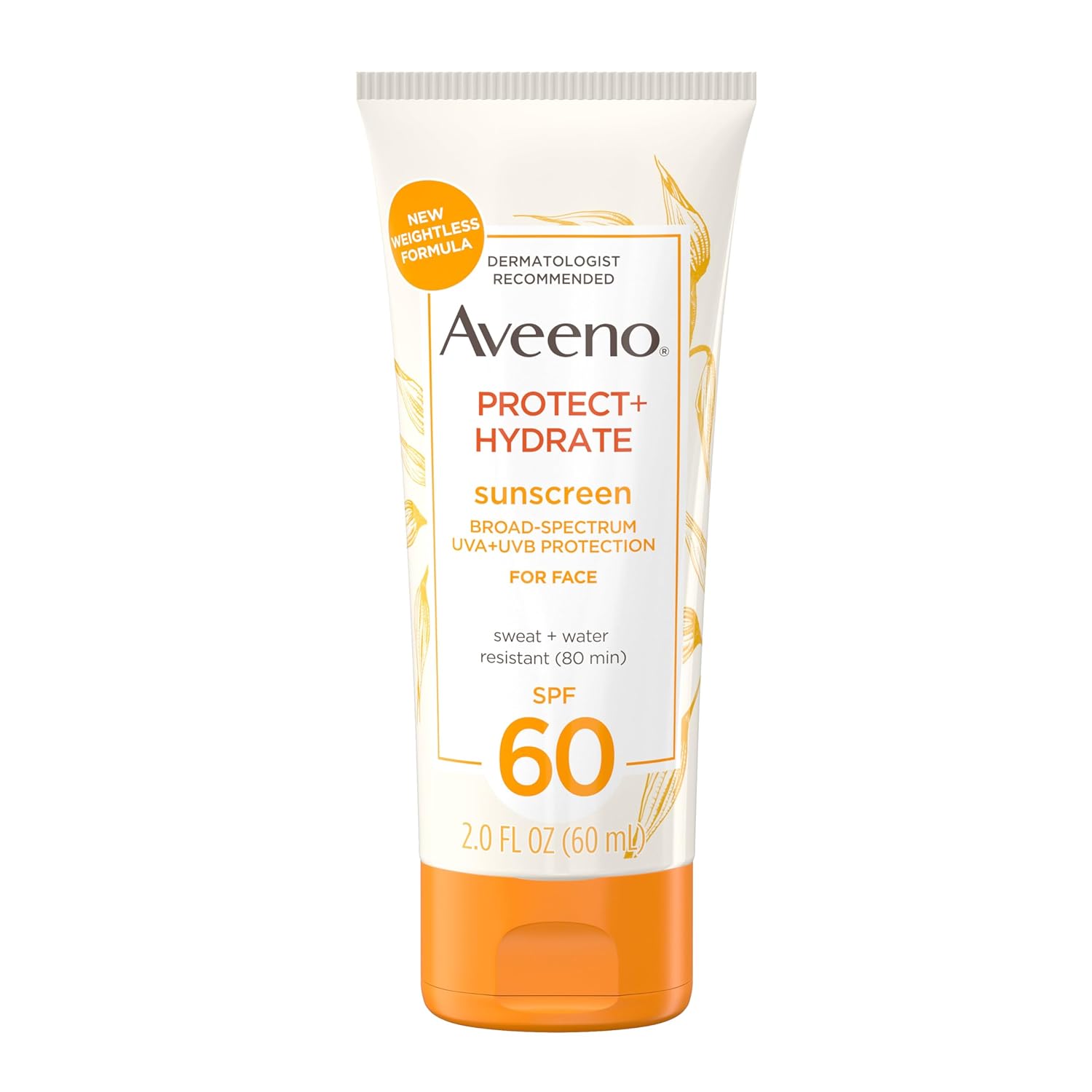






Price: $15.61 - $14.49
(as of Apr 08, 2025 11:15:39 UTC - Details)
The Best Sunscreen for Face: Your Ultimate Guide to Sun Protection
When it comes to skincare, one product stands out as a must-have: sunscreen. With so many options available, finding the best sunscreen for your face can be overwhelming. In this comprehensive review, we’ll explore various products, their benefits, and how to choose the right one for your skin type. Whether you’re looking for a lightweight formula, a sunscreen for oily skin, or something that also hydrates, we've got you covered!
Why You Need Sunscreen for Your Face
Sunscreen is essential for protecting your skin from harmful UV rays. These rays can cause premature aging, sunburn, and even skin cancer. Using the best sunscreen for your face not only protects your skin but also helps maintain an even skin tone and prevents dark spots. Let’s dive deeper into the different types of sunscreens available!
1. Choosing the Right SPF: What You Should Know
When searching for the best sunscreen for your face, one of the first things to consider is the SPF (Sun Protection Factor). SPF indicates how well a sunscreen can protect your skin from UVB rays, which cause sunburn. A higher SPF means more protection. However, many people underestimate the importance of applying enough product.
Key Takeaways:
- SPF 30 is recommended for everyday wear.
- Reapply every two hours, especially if you’re sweating or swimming.
- Don’t forget to apply on cloudy days; UV rays can penetrate clouds!
2. Understanding Broad Spectrum Protection
Not all sunscreens are created equal. It’s crucial to choose a broad-spectrum sunscreen, which protects against both UVA and UVB rays. UVA rays can penetrate deeper into the skin and contribute to aging and skin cancer.
Why It Matters:
- UVA protection helps prevent wrinkles and dark spots.
- Look for terms like “broad spectrum” on the label to ensure complete protection.
3. Different Formulations: Creams, Gels, and Sprays
Sunscreens come in various formulations, and the best one for you will depend on your skin type and preferences. Here’s a quick breakdown:
Creams:
- Ideal for dry skin.
- Often contain moisturizing ingredients.
Gels:
- Lightweight and non-greasy.
- Perfect for oily skin types.
Sprays:
- Convenient for reapplication, especially on the go.
- Ensure you apply enough product for adequate coverage.
4. Ingredients to Look For in Sunscreens
When selecting the best sunscreen for your face, the ingredients matter. Here are some beneficial components to look for:
Zinc Oxide and Titanium Dioxide:
- These are physical blockers that sit on top of the skin and reflect UV rays. They’re ideal for sensitive skin and provide broad-spectrum protection.
Chemical Absorbers:
- Ingredients like avobenzone and octisalate absorb UV rays. They're often more lightweight but may irritate sensitive skin.
Hydrating Ingredients:
- Look for sunscreens that contain hyaluronic acid or glycerin to keep your skin moisturized.
5. Best Sunscreens for Oily Skin
If you have oily or acne-prone skin, you’ll want a sunscreen that doesn’t clog pores or feel heavy. Here are some top picks:
Lightweight Formulas:
- Look for oil-free or gel-based sunscreens. They provide sun protection without adding extra shine.
Non-comedogenic Labels:
- This means the product is formulated not to block pores, which is crucial for those who struggle with breakouts.
6. The Best Sunscreens for Sensitive Skin
Sensitive skin requires special care, especially when it comes to sun protection. Here’s what to consider:
Fragrance-Free Options:
- Fragrances can irritate sensitive skin, so opt for products labeled “fragrance-free.”
Physical Sunscreens:
- Products containing zinc oxide or titanium dioxide are usually gentler and less likely to cause irritation.
7. Sunscreen for Daily Use vs. Outdoor Activities
Not all sunscreens are created for the same purpose. Here’s a quick guide on what to choose based on your activities:
Daily Use:
- A lightweight, non-greasy formula with SPF 30 is perfect for everyday activities.
Outdoor Activities:
- For hiking, swimming, or sports, look for water-resistant formulas with a higher SPF.
8. The Importance of Reapplication
Many people forget that reapplication is key to effective sun protection. Here’s how to make it easier:
Use a Setting Spray:
- A sunscreen setting spray can be a convenient way to reapply without disturbing your makeup.
Carry Travel-Sized Versions:
- Small bottles can easily fit in your bag, making it easier to remember to reapply.
Conclusion: The Best Sunscreen for Your Face is Essential
Finding the best sunscreen for your face is crucial for maintaining healthy skin and protecting against sun damage. Remember to choose a sunscreen with broad-spectrum protection, the right SPF, and a formulation that suits your skin type. Whether you prefer creams, gels, or sprays, there’s a perfect sunscreen out there for you. Don’t forget to make reapplication a part of your daily routine!
By following this guide, you're well on your way to selecting the best sunscreen for your face and ensuring your skin remains protected and beautiful for years to come. Happy sun protection!
Travel Size Sunscreen: One 2 fl oz bottle of Aveeno Protect + Hydrate Moisturizing Face Sunscreen Lotion With Broad Spectrum SPF 60 to help protect and provide all-day hydration to skin
Moisturizing Sunscreen for Face and Body: Made with nourishing prebiotic oat, this lightweight daily facial sunscreen helps leave skin feeling soft and moisturized all day as it combats sun induced free radicals that accelerate skin aging
Water Resistant Sunscreen: Featuring effective broad spectrum protection, this sunscreen lotion SPF 60 is paraben, phthalate, oil, Oxybenzone and dye free; it is water and sweat-resistant for up to 80 minutes for superior protection from the sun
Sunscreen Lotion for Sun Protection: Apply the sunscreen to your face 15 minutes before sun exposure, reapply as directed
Dermatologist Recommended Brand for Over 70 Years: Aveeno Protect + Hydrate face sunscreen helps prevent sunburn and decreases the risk of skin cancer and early aging caused by the sun when used as directed with other sun protection measures
